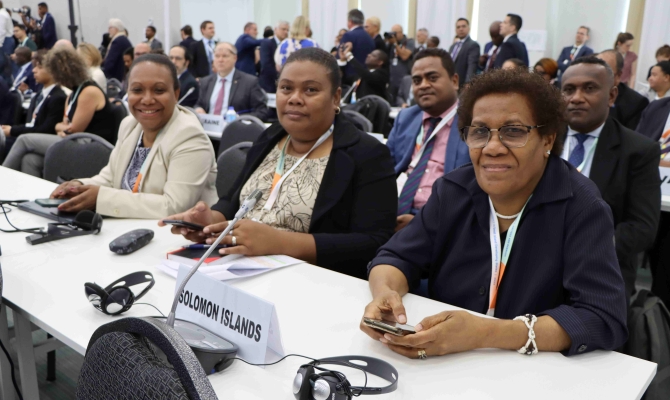
29 May 2024, Antigua and Barbuda - More work must be done to increase women’s participation at the climate change negotiations. Data released in January this year shows 34% of Women’s Participation on Party Delegations at COP28 is the same percentage as 10 years ago. Data on the Gender Climate Tracker also highlights that less than one in five Heads of Delegation at COP28 was a woman.
As stated by the UNFCCC:
"Climate change has a greater impact on those sections of the population, in all countries, that are most reliant on natural resources for their livelihoods and/or who have the least capacity to respond to natural hazards, such as droughts, landslides, floods and hurricanes. Women commonly face higher risks and greater burdens from the impacts of climate change in situations of poverty, and the majority of the world’s poor are women. Women’s unequal participation in decision-making processes and labour markets compound inequalities and often prevent women from fully contributing to climate-related planning, policy-making and implementation."
More must be done to bring women into the decision-making spaces when it comes to climate change but instead of SPREP telling you their story – we’re supporting Women to amplify their voices on this issue.
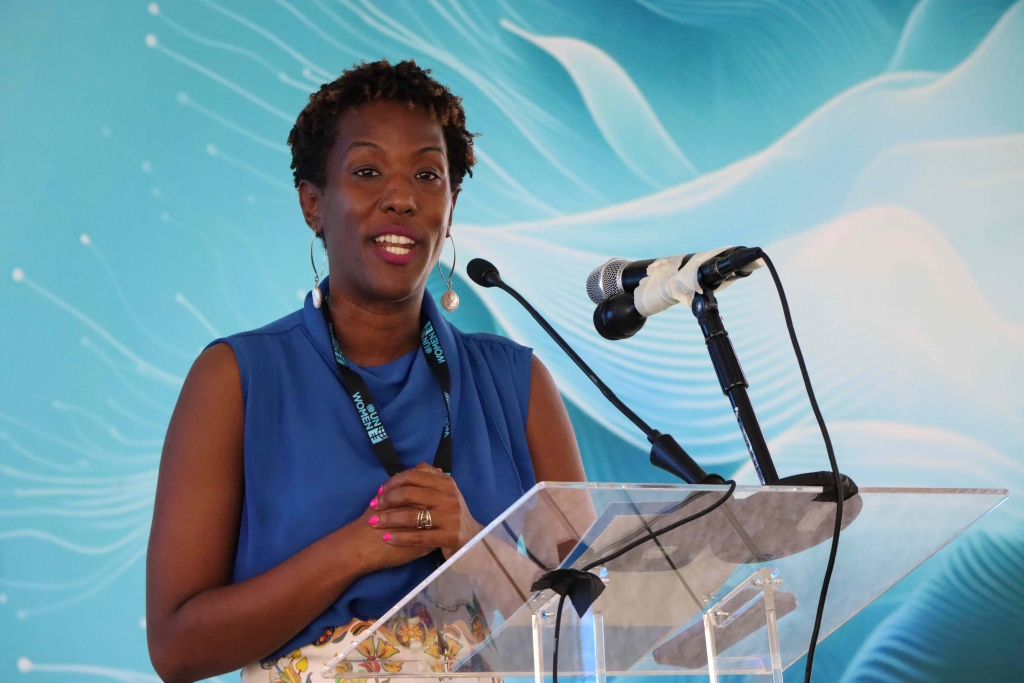
“Across Pacific Small Islands Developing States, 73 percent of the population are affected by extensive multi-hazard exposures such as natural disasters. Women in the Pacific are likely to be disproportionately affected by disasters through impacts on shelter, food security, health and nutrition and protection. Men take more risks to life and limb in the moments of and aftermath of hazards. Women and girls are more at risk for Gender Based Violence in the aftermath of hazards and carry the greater care responsibility. Globally, 1 in 3 women report having experienced intimate partner violence. On average 60 percent of women in some Pacific countries reported having experienced physical or sexual violence in their lifetime from an intimate partner or family member, this is relative to the global average of 30 percent.” - Ms Tonni Brodber, Representative of the UN Women Multi-Country Office- Caribbean
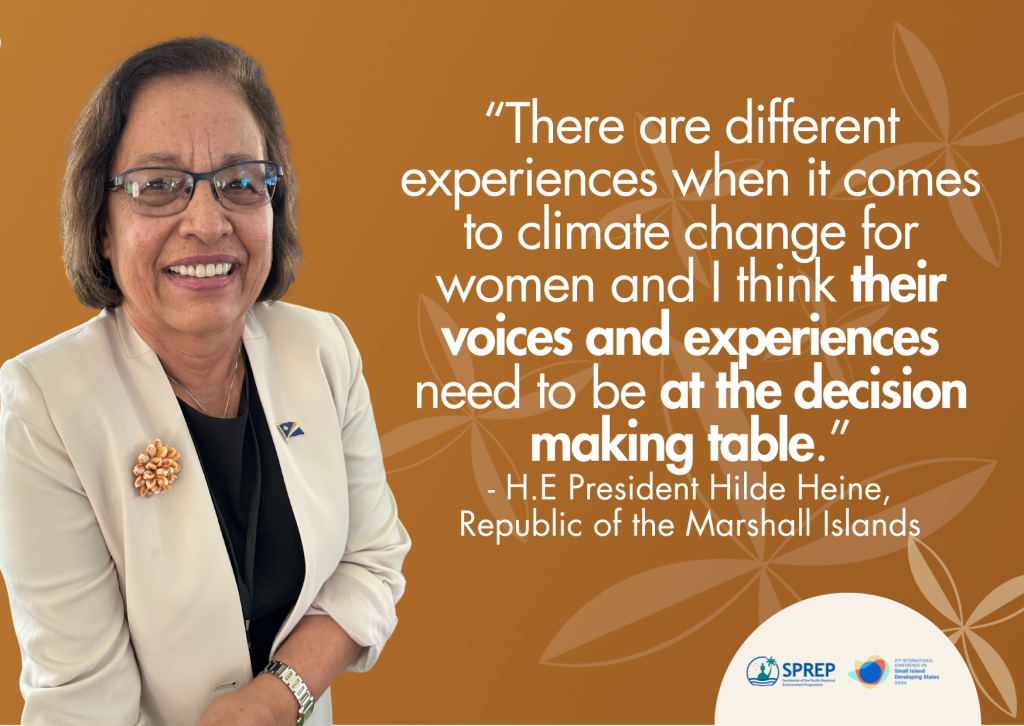
“Women play a very important role when it comes to decision making on climate change because we always say if I’m not at the table, it’s not about me. I need to be at the table to talk about my issues. There are different experiences when it comes to climate change for women and I think their voices and experiences need to be at the decision-making table.”- H.E President Hilde Heini, Republic of the Marshall Islands

“As Pacific Island women, we refuse to be defined solely by vulnerability in the face of climate change. Instead, we're seizing the narrative to champion our solutions and innovations from the forefront of the climate crisis. Whether in healthcare, peacekeeping, or economic security, we draw strength from our diverse expertise, affirming that women hold the keys to addressing these challenges head-on. Our contributions span the development spectrum, showcasing our resilience and unwavering commitment to finding sustainable solutions.” - Ms Sharon Bagwhan Rolls, Pacific feminist and Programme Manager Pacific Women Mediators Network
“I think there are a lot of climate effects that disproportionately impact women. For example, in the Pacific, a lot of the rural agriculture is done by women and some of that is the most exposed to climate impacts. We must have the voice of women in the room to impact the policy decisions. Let’s look at Palau. Women play a key role when it comes to fishing within the reef. Women also collect a lot of sea cucumbers this supports their livelihoods and scientists are telling us that climate change is impacting the yield of sea cucumbers. So how do you get our women who have relied on something historically to have an income and livelihood going forward? We must have their inputs in the room as we create climate policy. I also think beyond that, women typically are very vocal when it comes to environmental issues and voicing concerns for our future. I see it in the climate change negotiations, our women negotiators fight very hard for the things that we need to fight for, and we need more of them in the room.” – H.E Ambassador Ileana Seid, Palau’s Ambassador to the United Nations.
“I think you can never have enough women voices in the room when it comes to decision making on climate change. There's a study out of the European Union from a few years ago that finds empirically that Parliament's with more women in them have stronger climate targets. So, from my perspective, the more women the stronger the global climate action.” – Australia’s Climate Change Ambassador, Ms Kristin Tilly.
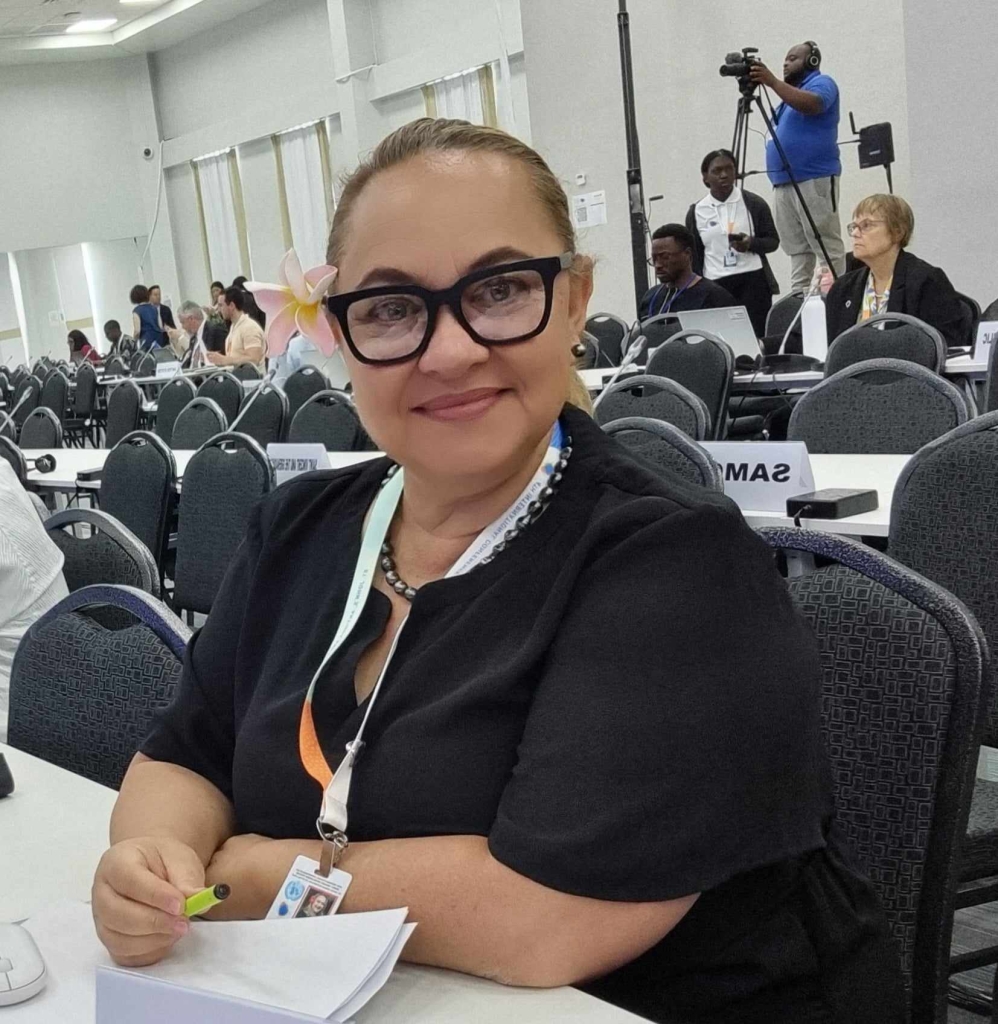
“We all know the difference we can make together to empower our Pacific Islands women and girls to be in the room when decisions are made on climate change. If our voices are not heard, then we may not be considered. Together, we as women must support each other to protect our future and help build our Pacific islands resiliency together. As women we have a right to be at the table, as women we have the power to be heard, and as women we have a responsibility to be the voice for all women that are not being heard. This is in our hands. We can make a very real difference to help protect our Pacific Islands people.” – Ms Tagaloa Cooper, Director of Climate Change Resilience, Secretariat of the Pacific Regional Environment Programme (SPREP)
“I remind us all that gender equality and the empowerment of our women and girls are not just mere goals; they are the cornerstones of our hope, our resilience, and our sustainability, especially for small island developing states. By investing in our potential and meeting in fora like these, together we can forge a future where our women and girls can thrive against all odds, turning vulnerabilities into strengths and dreams into reality.” - Senator The Honourable Samantha Marshall Minister of State within the Ministry of Health, Wellness, Social Transformation, and Environment (inclusive of Gender Affairs), Antigua and Barbuda.
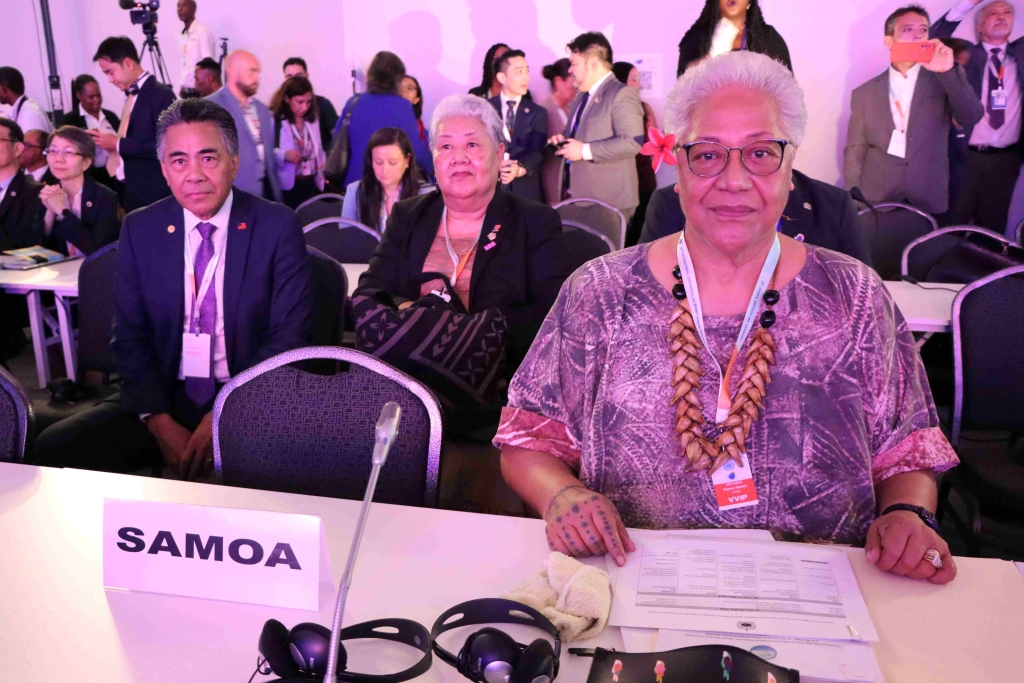
“Achieving gender equality is not just a moral imperative, but also an economic necessity. It can unlock significant economic benefits, drive sustainable growth, and promote social stability. The SIDS4 conference provides us with a once in a decade opportunity to renew our commitment to ensure an equal future for women and men in island nations. Let us all seize this moment to make a difference in the lives of the women and girls in these countries.” - Prime Minister of Samoa, Hon Afioga Fiamē Naomi Mataʻafa
The voices of the inspiring Women's featured in this story were collated across the full period of the Fourth International Conference on Small Islands Developing States.
The SIDS4 conference is held from 27 to 30 May 2024. It is preceded by the SIDS Children and Youth Action Summit from 24 – 26 May, the SIDS Gender Equality Forum on 26 May, the SIDS Global Business Network Forum from 25 – 26 May and the SIDS4 Private Sector Roundtable on 28 May, 2024.
For more information, please visit https://sdgs.un.org/conferences/sids2024.
Stay tuned to www.sprep.org and FB: https://www.facebook.com/SPREP.PROE and @SPREPChannel on X (formerly Twitter for more news on the Pacific at SIDS